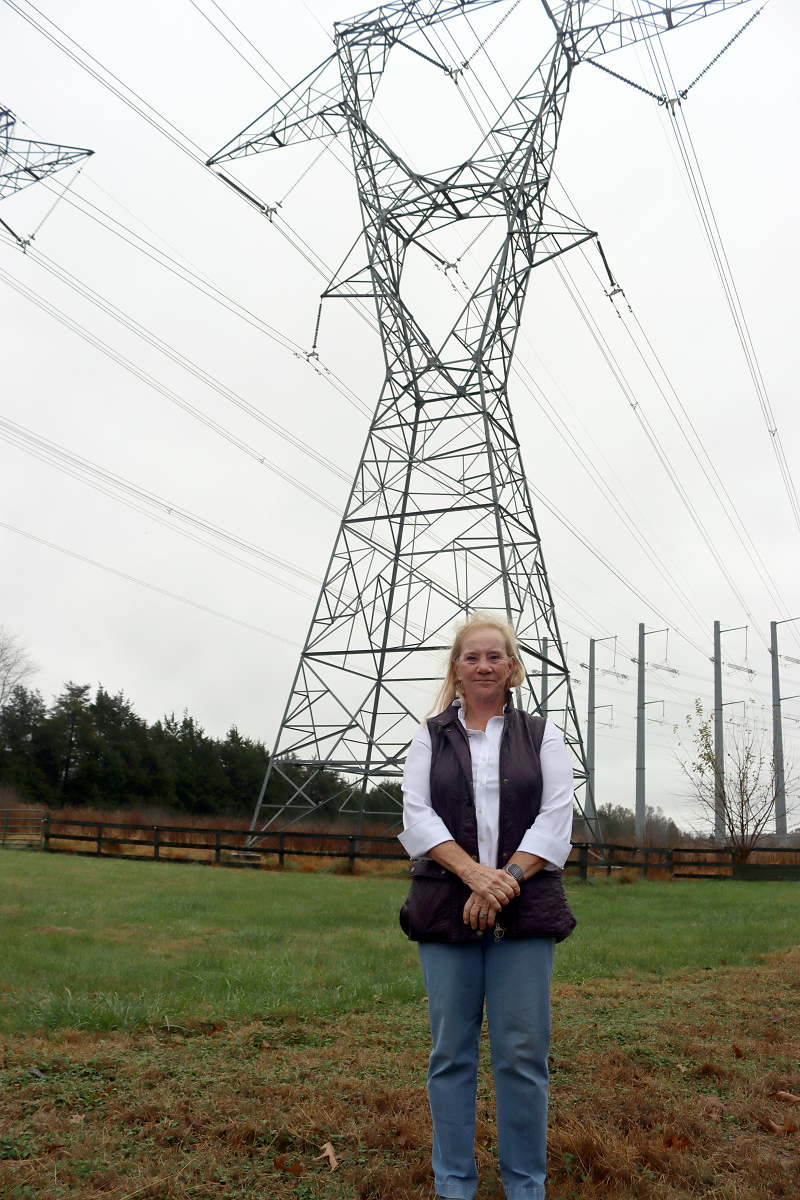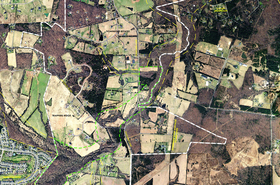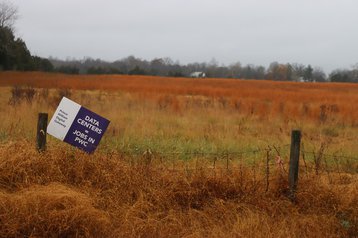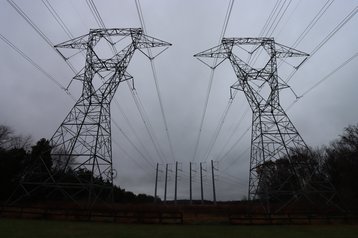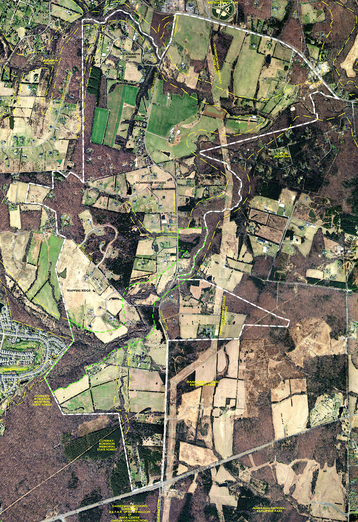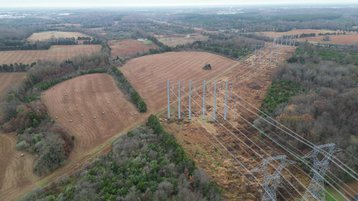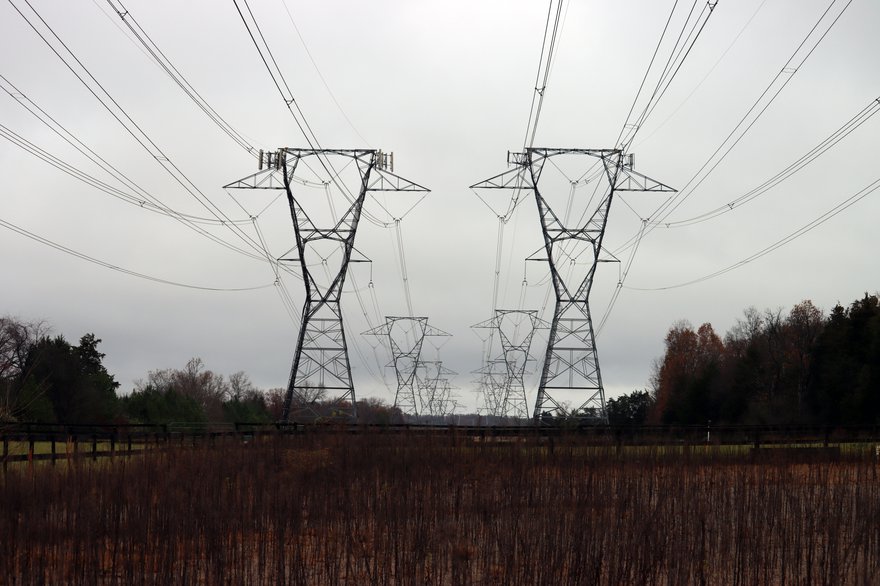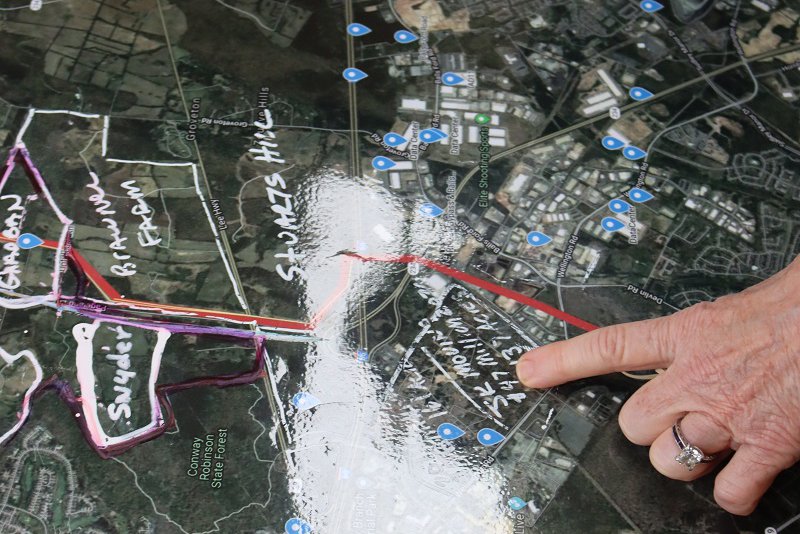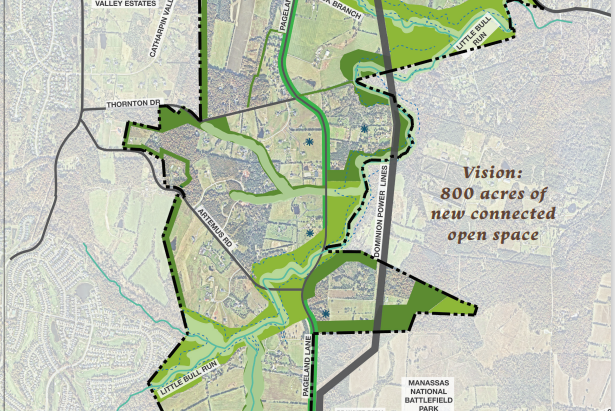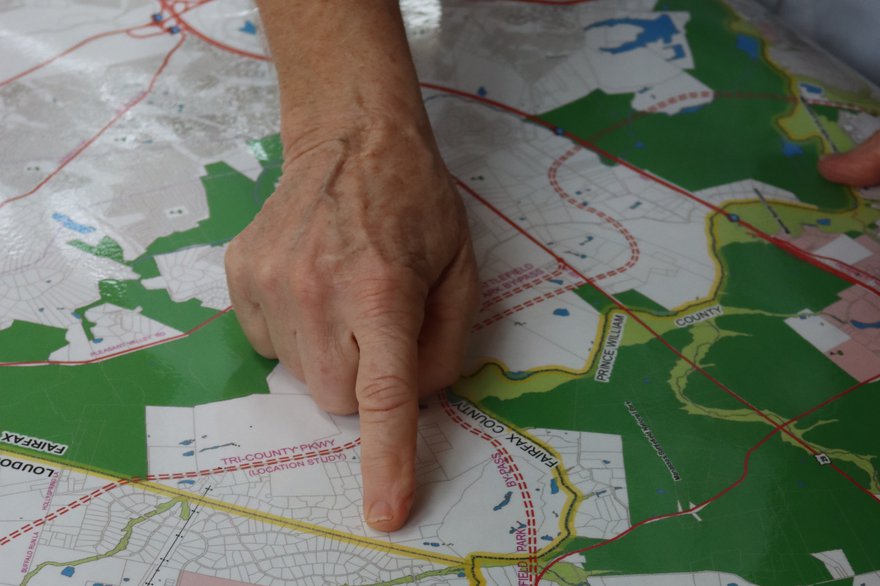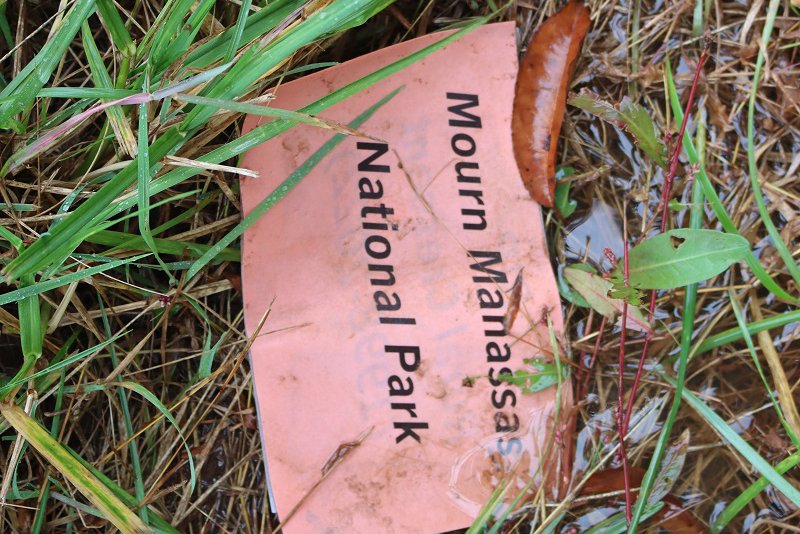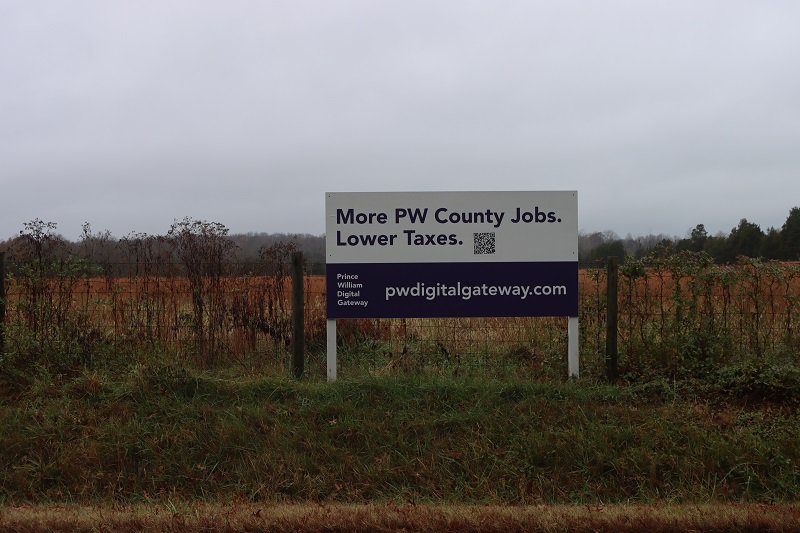Since the 1990s, Northern Virginia has been the center of the data center world, with Loudoun County as the capital. But that geography could be changing.
2022 has seen officials in neighboring Prince William County – already a sizeable data center market in itself – vote to replan 2,133 acres of the county's "rural crescent" for data centers, paving the way for up to 27.6 million square feet (2.56 million sqm) of data centers.
If fully built out, the PW Digital Gateway could more than double the county's existing data center footprint and see it overtake neighboring Loudoun County.
Some 18.5 million sq ft (1.71 million sqm) is set to be developed by just two companies – QTS and Compass Datacenters – over the next decade or so, potentially turning two already large players into the biggest data center operators in the state.
But the site, located along Pageland Lane between Manassas and Gainesville, is adjacent to Manassas National Battlefield in a historically rural area. Opposition to the project has been fierce, and is expected to continue.
This feature appeared in the latest issue of the DCD Magazine. Read it for free today.
Data centers a fight too far in Prince William
Reports of a PW Digital Gateway surfaced in early 2021 after a group of landowners unveiled plans for a mammoth 800-acre data center development. At the time, the proposal aimed to string together 30 parcels of agricultural land owned by 15 property owners along the county’s “rural crescent” to be developed by a single unnamed data center developer, later revealed to be QTS. The company hopes to develop 7.9 million sq ft (734,00 sqm) of data centers on 812 acres.
The project is being led by local landowner and landbroker & commercial real estate consultant, Mary Ann Ghadban. Aged 68, she has lived on a plot in the center of the Gateway land for around 40 years with her family and horses.
“I didn't know anything about data centers until 2019,” she tells DCD. “I didn't know that our area was even in the running for data centers. Then I found out all the revenue that Loudoun County gets and all the world-class schools they have because of all the revenue.
“It was a lot of work. We had been working seven days a week, most days for the last two years. A lot of people kind of laughed at me and thought we were crazy.”
Ghadban said there was a combination of factors that led her down the road to create the Gateway proposal. The first were the Dominion transmission lines that run through her land along the battlefield north to Loudoun that were installed around 2008.
The second was a quarry expansion nearby to the north in the last few years. And the third was a data center; CorScale’s Gainesville Crossing project currently in development on the southern end of PageLand lane.
The recently-launched data center platform of real estate firm Patrinely Group and USAA Real Estate, CorScale is developing a 300MW campus featuring five two-story buildings. The site was bought from Buchanan Partners for $74.5 million in August 2020; CorScale broke ground on the first building in February 2022 and the site is due to go live early next year.
“I've been here forty years. And it's just been my dream home, we thought we'd stay here forever. But when Gainesville Crossing got approved in 2019, that's when we said, ‘we're stuck between a quarry and a massive data center,’” says Ghadban. “That was the final nail in the coffin.
“We've become an industrial quarter. There’s nothing rural about this area anymore. And when you put these transmission lines through here, it's been proven to destroy your property values and the ruralness,” she says as we stand under the towering lines, which are noticeably buzzing in the light rain.
“We had to take matters into our own hands. When can you find 194 neighbors agreeing on anything? It just so happened, instead of just saying let's build houses, we said let's build data centers.”
Ghadban claims the site makes more sense as a large ‘data center corridor’ than the county’s current Data Center Overlay District – an area where data centers are permitted and require less zoning and planning permission applications – given its self-contained nature and proximity to existing infrastructure.
“This is how you should have planned data centers to begin with. You've got the power lines here, you have the fiber, why wouldn't you put data centers where the power lines already exist?,” she says. “We'd been listening to what's going on over in Loudoun, and the attitude changed; data centers don't want 20 acres anymore. They want 100 acres, because they want a runway. Plus we were not selling at the prices of Loudoun County; more like a third of the price of Loudoun. We wanted to entice those data centers to come here, get a footprint in where they can be for years.”
Just the 800 acres then, is it?
While Ghadban has been the driving force of pushing the Gateway project through, she and other landowners in the project had for years been staunch defenders of the area.
“There's never been peace on Pageland, never,” she tells DCD. “But the writing's on the wall, and we can't be here anymore. It doesn't matter how much you love it.”
Ghadban and another local landowner, Page Snyder, were key players in a yearslong battle against a planned ‘Bi-County Parkway’ which would have taken acres of the Battlefield and connect I-66 in Prince William to the Dulles International Airport in Loudoun. One profile piece from that time dubbed them ‘the Ladies of Pageland Lane.’
During the 1950s, Snyder’s mother Annie fought against the widening of local roads and a motocross speedway racetrack. The Snyders had previously fought against an amusement park, a large retail mall, and the proposed Disney theme park. Ghadban, however, was in favor of Disney.
Like Gadban, Snyder has featured heavily in the press in over the Gateway project. “We’ve spent our entire lives fighting one thing after another, it’s just gotten worse and worse,” Snyder, 71, told the Wall Street Journal. “Basically, we’ve just thrown in the towel.”
While the initial 800 acres was already a massive land offering in a constrained area, Ghadban claims that once the county saw the proposal, it sought to expand it further. Another 1,300 acres of land were added to the proposal by more than 160 other local landowners looking to sell up – Ghadban said she wasn’t involved in discussions for those tracts – with around 800 acres set to be bought and developed by Compass. The company wants to build 10.52 million sq ft (977,350 sqm) of data centers by 2030.
The original Gateway landowners claim to have spoken to around 11 interested parties for the original 800 acres, before settling on QTS. Ghadban says she was firm that the land should be sold to an operator, not merely a developer.
“Because of my experience, I know what happens if you sell to a developer; they start squeezing the landowner and/or the county,” she said. “This is a very sensitive area, and we knew we had to go above and beyond on everything to get this off the ground.
“We turned down two major developers, who were very mad at us. I was looking for a data center user that could go through the school of hard knocks with us and take the heat, and do what we need. And QTS met all the criteria.”
The QTS and Compass projects combined cover around 1,630 acres and 18.42 million square feet of data centers. A letter from NOVEC in a previous county staff report suggests the project could total more than 1,000MW. Aside from what is described as a ‘small parcel,’ the rest – around 500 acres of space and potentially 9 million sq ft (836,100 sqm) of data centers – is set to be public parks, trails, and remain undeveloped.
The number of buildings the companies each plan to develop is unclear, but documents seen by DCD suggest that, between them, the two companies have around 10 sizeable plots of which to develop, large enough to hold multiple multi-story buildings.
DCD understands QTS is likely to start developments on the south end of Pageland closest to existing infrastructure and work its way north with future developments. The first buildings aren’t expected to begin development until 2024.
Despite repeated attempts, neither QTS nor Compass were willing to be interviewed by DCD for this or previous articles on the Gateway project.
The battle that split the community
Opposition to data centers, especially in rural areas not used to such developments, is not uncommon. But the scale of the Gateway project has unsurprisingly seen opposition on a scale rarely seen for such buildings.
The selling landowners and prospective buyers claim the view-shed from both the battlefield and the neighboring Heritage Hunt community will be protected, as will the watershed. The group promises to make some 400 of the 2,100 acres public parkland. The groups also promise a 0.30 floor area ratio (FAR) that is less than that permitted in the Data Center Overlay District and so will result in more green space between facilities.
“There's all kinds of new parks and open space being created," says Ghadban. “Without these 2100 acres, that would never happen because people would just subdivide their lots and it would still be private property with no open space.”
She also points to the financial benefits – estimated by the county to eventually reach $400.5 million in local tax revenue annually under current tax rates – as a way to improve local schools and services.
Opponents of the projects argue against developments in the rural area, worried about the potential impact the rezoning could have on the nearby Manassas National Battlefield and other local historical sites, as well as noise pollution and impact to the local water table and rural nature of the area.
The Prince William County Historical Commission, Manassas Battlefield National Park, and American Battlefield Trust are all opposed to the development. Environmental officials at Prince William County asked the board of supervisors to reject the proposal while Fairfax County officials submitted a letter to PWC officials requesting they rethink the proposals due to the potential impact to the Occoquan Watershed and drinking water in the area.
US Rep. Jennifer Wexton, a Democrat representing Virginia's 10th Congressional District, said the project could have a "significant negative impact" on the surrounding environment and community. Even documentary filmmaker Ken Burns has spoken out against the plans, saying the proposals could have a “devastating impact” on the Manassas National Battlefield.
The scale of opposition saw the proposals make it into mainstream news including WSJ and Reuters, a rare feat for data centers. In February 2022, around 50 people from the Coalition to Protect PWC gathered outside QTS’ facilities in Manassas, with chants and signs saying “stay out of the rural crescent” and “save our sacred battlefield.”
QTS officials did not acknowledge the rally, on the day or subsequently.
Like many others selling up, Ghadban aims to remain in the county. She says she is largely nonplussed about the idea of leaving the home she built, or any potential bad feeling from what she says is a small minority of local people (though she admits some opponents have been “rude” to her).
She does, however, direct her ire towards local supervisor Jeanine Lawson, who has historically been very pro data center with the exception of the Gateway project.
“Supervisor Lawson created this nightmare. She agreed to 3 million square feet of data center to come right next to the battlefield [with the CorScale project]. Stop making us out to be the bad guys.” County officials voted in favor of changing the area's comprehensive plan in November 2022, providing by-right zoning for data centers on the land in question.
Normally a formality, the meeting itself filled with acrimony. Officials voted 5-2 in favor with no abstentions (although one reclusion) in a marathon 23-hour meeting. The meeting began at 7.30pm local time, and continued until after 9am the next day. Local news reported more than 250 registered to speak during the meeting. Some 40 people spoke remotely via Internet calls, which the meeting didn’t get to until around 5am and didn't finish until 8am local time.
The board had to take short recess a little after 1am because the audience repeatedly ignored Chair Anne Wheeler’s warnings to follow rules of decorum.
The result, while disappointing to some, wasn’t a surprise. The Planning Commission had previously voted 4-3-1 to recommend approval of the application, and most councilors had already stated their position on the matter in the weeks and months before the vote.
However, councilors bickered repeatedly during the actual vote over process and lack of collaboration on the proposals, with Chair Wheeler threatening another recess if things didn’t calm down. Supervisor Victor Angry’s decision to try and put forward the motion to approve the GPA as soon as the board had heard from the public without further discussion proved particularly irksome to other supervisors. At one point Supervisor Lawson said the board's Democrat majority had treated the Republican minority like a "battered wife."
Chair Wheeler and Supervisors Angry, Bailey, Boddye, and Frankline voted in favor, with Supervisors Lawson and Vega voting against.
The supervisors could be heard over the microphones continuing to bicker after the results of the vote were announced. “This is a bold plan and it will change the landscape of Prince William County,” Wheeler said before voting in favor.
The next battles for Pageland
While the comprehensive plan amendment set the wheels in motion, there are potentially still many battles to be fought. Both QTS and Compass have filed separate rezoning applications, and will require planning permission to actually develop the facilities.
DCD understands landsales are conditional on QTS and Compass getting zoning approval for their projects, meaning landowners will remain in their homes for months to come, if not years.
“Compass Datacenters is committed to being a good neighbor and working through the County’s zoning process to solicit input and feedback from stakeholders on our construction and operating plans,” Chris Curtis, SVP of Development and Acquisitions for Compass Datacenters told DCD after the GPA vote.
QTS provided a similar statement: “QTS is pleased that the Prince William County Board of Supervisors recognizes the compelling economic and community benefits of the Digital Gateway project and has approved the proposal to move forward. "We are eager to continue working with stakeholders and members of the community to make this project a reality and help Prince William County continue to flourish.”
Opposition groups are likely to fight each application as they come through, and upcoming elections could change the political landscape.
“I think once you're an obstructionist, you're always an obstructionist,” says Ghadban. Speaking previously to DCD, Elena Schlossberg, executive director of the Coalition to Protect Prince William County, made it clear the group plans to keep fighting. “I don't think QTS understands the passion of this community,” says Schlossberg. “And I don't think that this new board does either. We believe you don't have to sacrifice your natural resources, your environment, your hallowed ground, your clean drinking water, for economic development.”
DCD reached out to Schlossberg for further comment after the GPA vote, who told us: “We are not done fighting.”
There have been ongoing marketing campaigns from both sides, with each accusing the other of lies and disinformation. The side of the road along Pageland was littered with flyers both for and against development when DCD visited the area in November in the wake of the decision.
We continue to receive regular updates and newsletters from both pro-PW Gateway and opposition groups, and further legal challenges and protests against the project are already underway.
At time of writing, two lawsuits have been filed against the county in the wake of the GPA authorization. Lawsuits from the Oak Valley Homeowners Association, Inc. and Gainesville Citizens for Smart Growth have both filed lawsuits against Prince William County’s supervisors, are both seeking to have the decision reversed and prevent similar changes being passed in future.
Supervisor Lawson told local press she has vowed to continue the fight against the project, and encouraged residents to contact their respective supervisors to oppose the development.
While the majority of the county board voted in favor, local elections are looming in 2023. All eight seats of the Prince William Board of County Supervisors and the Chair seat will be up for election this year, and a number of Supervisor candidates are running on anti-data center platforms.
December 2022 saw Supervisor Pete Candland resign over the matter, saying his ability to serve “has been greatly diminished” over the project and the fact the county’s attorney had advised he no longer votes on data center projects until the rezoning of his land was complete. Candland was initially against the Gateway project, but later became one of the landowners part of the proposal.
This conflict of interest saw him recuse himself from the matter, which was controversial given the project was literally in his backyard in an area he was meant to represent. Local residents had started a recall petition to remove Candland and force a new election prior to the GPA decision, alleging ‘neglect of duty and misuse of office.’ He was also facing a federal lawsuit over censoring anti-Gateway views posted to his social media accounts.
“Candland’s resignation isn’t unexpected, it’s more than a year overdue,” the PWC Coalition’s Schlossberg said. “His financial conflicts of interest in the approval of the Digital Gateway have not only deprived his district’s residents of effective representation – they have tainted the entire county review and approval process, including the 2040 Comprehensive Plan.
“But there is no fond farewell for farcical representation - and no pausing in a legal and political battle that is far from over.” Whether the prospective replacement supervisor is for or against the Gateway project is likely to be a key issue in upcoming elections to replace Candland.
Both Republican and Democrat candidates selected for the special election to fill Candland's seat – Bob Weir and Kerensa Sumer respectively – are against the Gateway project.
Chair of the board Ann Wheeler is also the target of a recall effort over conflicts of interest due to her investments in data center companies, including between $100,000-$500,000 in Amazon and QTS owner Blackstone. Rival Democrat Deshundra Jefferson– again running on an anti-Gateway platform – is running for county Chair and hopes to oust Wheeler.
Other local politicians have begun to take action; In January 2022, Virginia Senator Chap Petersen, representing large areas of Fairfax County, introduced two data center bills to the Virginia General Assembly. One, specifically worded with the Gateway project in mind, would only allow the siting of data centers to be approved in areas where the development would have a “minimal impact on historic, agricultural, and cultural resources” and “not be within one mile” of a national park or state park or other historically significant sites.
"That would deal with the Digital Gateway data centers coming down Pageland that would basically be lined up adjacent to Manassas Battlefield. I would prohibit that, flat out prohibit," Senator Petersen said.
At the same time, Democratic Prince William Delegate Danica Roem introduced two bills that both increase building requirements of data centers near the state’s National Battlefield Parks. She previously said she is " adamantly opposed" to data centers being developed on that land. At the time of writing neither of Petersen's nor Roem's bills have been passed.
At time of publication, most of the bills have been referred to various committees, while two have been tabled.
The wider national press will likely move on from the latest battle for Pageland Lane, but the war is set to continue until the last data center is built.

